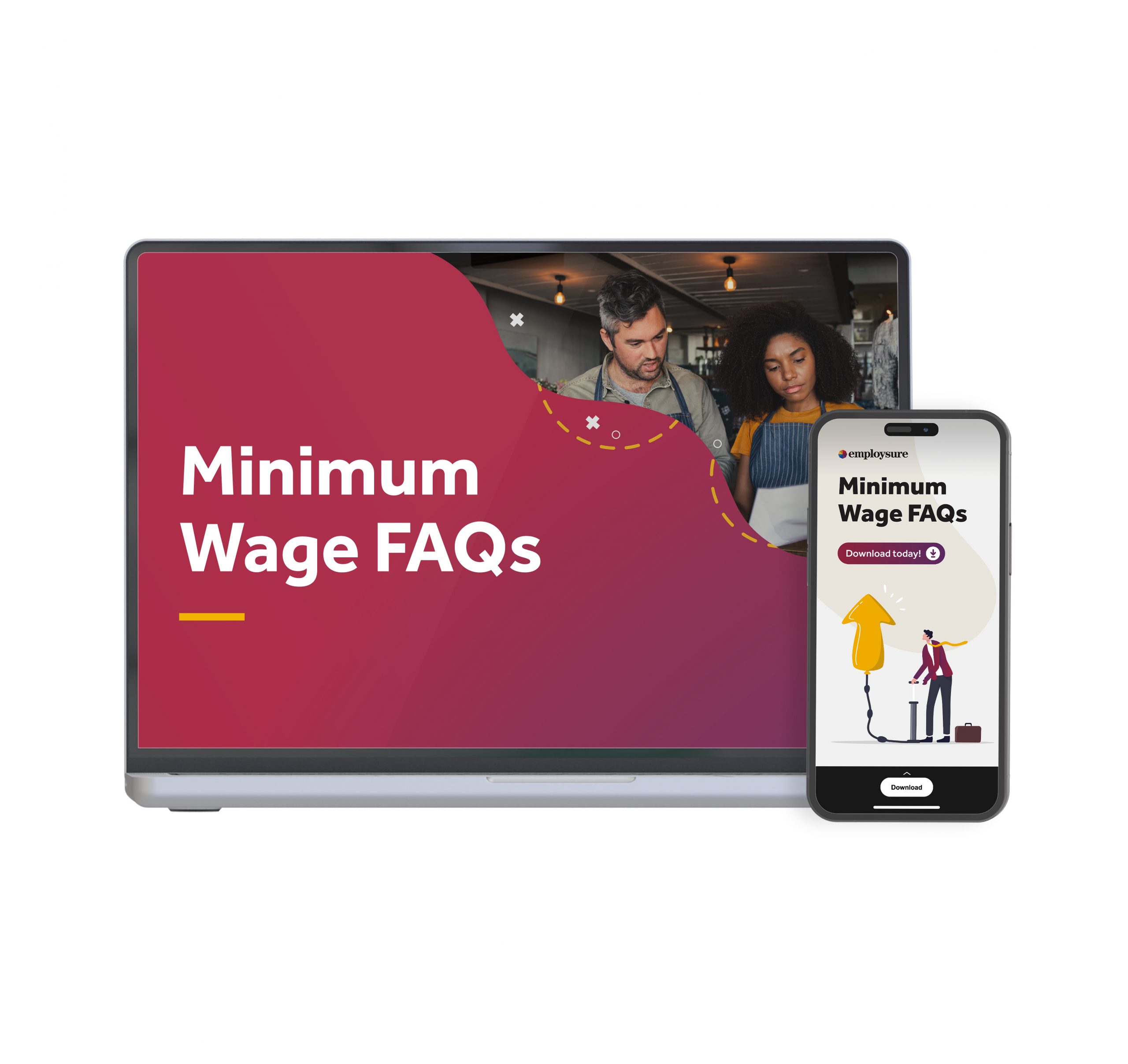
For supporters of the living wage, ‘earning a living’ should always mean earning enough to live comfortably. Are you new to the living wage? Find out how it is calculated, how it differs from the minimum wage, and the pros and cons of implementing the living wage in your business.
What is the living wage?
The living wage refers to a base level of pay that allows employees to afford housing, food, healthcare, and other necessities.
The goal is to increase the standard of living, while ensuring the minimum number of people fall beneath the poverty line.
The New Zealand living wage is based on local living costs and calculated by the New Zealand Family Centre Social Policy Unity, before being published by the Living Wage Movement.
The current living wage rate in New Zealand for 2023-2024 is $26.00 an hour, marking an increase of $2.35 or 9.9% on the 2022-23 rate.
What is the minimum wage?
The minimum wage is a base rate of pay before tax that all employers must pay employees. Like many other countries, the minimum wage in New Zealand is enforced by law. Paying an employee less than the minimum wage is illegal, even if you agree a reduced rate with your employee.
New Zealand was the first country in the world to establish a Minimum Wage Policy in 1894. Minimum wage laws have been modified ever since to promote equal pay and higher living standards for Kiwis.
How much is the New Zealand minimum wage?
There are three categories of New Zealand minimum wage:
Adult minimum wage: This applies to all employees who are over 16 and not categorised as trainees or starting-out.
Trainee minimum wage: This applies to employees aged 20 years or over whose employment agreement states they must complete at least 60 credits a year of an industry training program.
Starting-out minimum wage: This applies to 16-17-year-olds who have completed less than 6 months of continuous service with an employer. After 6 months they receive the adult minimum wage. This category also applies to 18-19-year-olds without 6 months of continuous service who have received social security benefits for 6 months or more.
The Ministry of Workplace Safety and Relations announced minimum wage increases to $22.70 for adults and $16.18 for trainees and starting-out employees. These revised rates came into effect on 1st April, with over 225,000 Kiwis enjoying an increase in pay.

The minimum wage increased on April 1st. Is your business ready?
Download our FAQs to understand how the new minimum wage affects your business.
Key differences between the living wage and the minimum wage
The living wage should not be confused with the minimum wage, which is the lowest amount an employer can pay as mandated by law.
The key difference when the living wage is compared to the minimum wage is the calculation criteria. The New Zealand minimum wage is based on inflation rates and wider economic conditions. The living wage amount is based on more specific variables, such as the local cost of housing, food, and healthcare.
Although the New Zealand minimum wage is mandated by law, the living wage is optional for employers.
Employer considerations for the living wage
The living wage has long been a point of heated debate. Central to the movement is the belief that no one who works for a living should be poor. However, those who oppose the movement believe it places businesses under increased financial strain.
If you are contemplating implementing the living wage in your business, here are a few key challenges and benefits to take into consideration:
| Challenges ❌ | Benefits ✔️ |
| Reduced competitiveness: Companies that commit to increased overheads by paying more may struggle to be competitive. This is particularly likely if they are in a global market with rival businesses in low-wage countries. | Increased productivity: It is no secret that healthy and happy employees are more productive. Ensuring a better standard of living for your staff is one of the best ways to boost their output, creating a win-win scenario. |
| Cost-push inflation: Many economists argue the living wage can lead to cost-push inflation. This is because increases in costs are likely to be passed on to consumers. | Improved retention: There is a direct correlation between wage rates and employee retention. By paying your staff more, you can remove one of the most common motivations for seeking alternative employment opportunities. |
| Reduced employment: Increases in labour costs may lead to fewer job opportunities company wide. It could even lead to the outsourcing of certain roles to reduce the wage bill. | Reputational benefits: Customers are voting with their wallets when it comes to businesses involved in social and economic issues. Setting an ethical example is an effective way to enhance your reputation among a customer base. |
| Boosting the economy: By paying more, your company will help raise the public’s spending power. As more businesses opt-in to the movement, purchases of goods and services will increase, and the economy is likely to flourish. | |
| Reduced reliance on welfare: With increased pay rates, employees are less likely to depend on state-funded benefits and welfare. |
Unsure about wages in your business?
Employsure has worked with 30,000 businesses across Australia and New Zealand, supporting them with employment relations and workplace health and safety. You can call our 24/7 Advice Line today on 0800 365 515 to get all your questions about wages answered.
Frequently Asked Questions
How many accredited living wage employers are in New Zealand?
According to the latest figures from livingwage.org.nz, 420 accredited living wage employers in New Zealand voluntarily meet the latest pay requirements with their staff and regular contractors.
